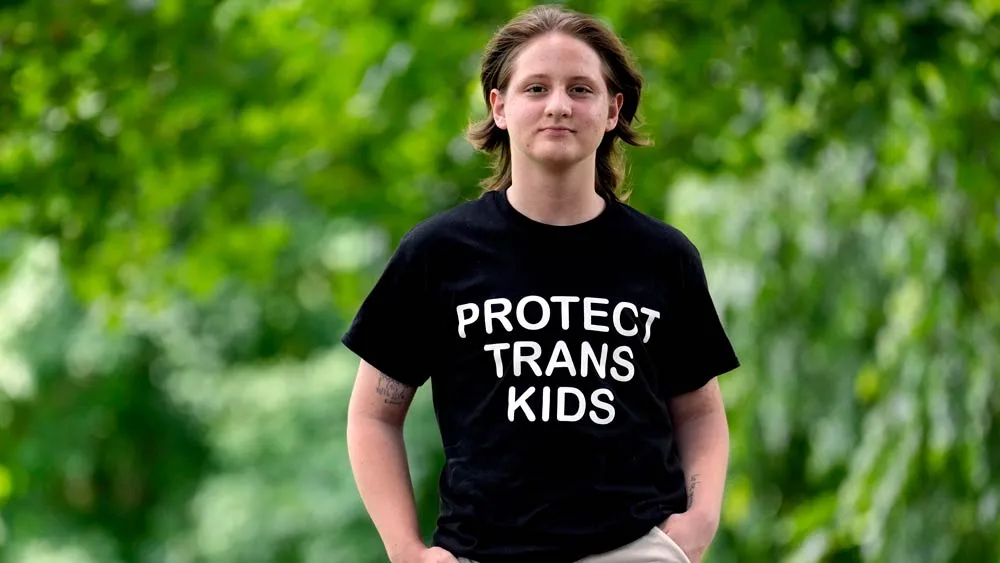October 19, 2017
The Impact of Eating Disorders on the LGBTQ Community
READ TIME: 4 MIN.
While the month of October is dedicated to recognizing the LGBTQ community, honoring and celebrating its history and heritage, it is also�important to raise awareness of an often under-discussed yet significant health issue affecting this community: eating disorders.
�
Because eating disorders don't discriminate and can affect anyone no matter their age, race, gender, or sexual orientation, for those who identify as LGBTQ, they can serve as a way to cope with shame and feelings of not being accepted.
"Eating disorders are no longer only assigned to teen girls but are affecting anyone regardless of race, gender or any division," said Myra Hendley, Primary Therapist at Eating Recovery Center, The Carolinas. "When general self-worth suffers, eating disorders present in people's lives as a way to cope or fill a void. Physical self-worth or body image is commonly associated with eating disorders and is a prevalent topic in the LGBTQ population as well."
Hendley said three things come to mind when looking at eating disorders: Past trauma; family of origin influence; and weight stigma in society, coupled with temperament predisposition can lead to eating disorders.
"If one is able to think of an eating disorder symbolically, they will gain insight to why the LGBTQ population presents for eating disorder treatment. Simply put, an anorexic patient may hide their self or who they are and then resort to restricting their food and shrinking away to nothing, oppressed in society. Likewise, a Bulimic patient or a Binge Eating patient may seek to fill the void of social acceptance and begin their novelty seeking track that leads to a cycle of binging and purging," she explained.
�
There are some startling�statistics around the LGBTQ community when it comes to eating disorders, a deadly mental illness with the highest mortality rate, including:
The pressure to be physically perfect in society factors into developing an eating disorder; specifically, body image and self-image is often highly important for gay males, and may play into their susceptibility to developing an eating disorder.
"I asked a patient in my practice about eating disorders in the LGBTQ community and they responded, 'I think that gay men have it tough because they have a lot of pressure to be thin.' I agree with that patient and unfortunately think this is perpetuated in media and society," said Hendley.
The National Eating Disorders Association reports that gay men are disproportionately identified as having poor body image to other populations. Gay men represent only 5 percent of the population, but 42 percent of those men have eating disorders. The numbers are growing among the transgender population as well. One can only assume this shocking statistic supports the assumption that body dissatisfaction is highly prevalent and socially noticed in the gay male community leading to eating disorder behaviors to change dissatisfaction
In addition, much like the general population, the LGBTQ community has been impacted by the rise of trends such as extremely healthy and clean eating, which can lead to orthorexia, as well as an obsession with fitness and compulsive exercising.
The National Eating Disorder Association (NEDA) says "being aware of and concerned with the nutritional quality of the food you eat isn't a problem in and of itself, people with orthorexia become so fixated on so-called 'healthy eating' that they actually damage their own well-being." People who present in therapy with Orthorexia are not just vegetarian or health conscious but they are so concerned with their eating content it presents like OCD and really takes a toll on a person's day to day life.
"LGBTQ youth, like any youth, need support in facing body dissatisfaction and eating disorder trends in our society," said Hendley. "If someone is struggling with an ED, then treatment is recommended from a professional."
She suggests social media be used for enhancing and fostering body positivity by making wise choices of what sites and individuals to reference and follow. Another tip is developing a healthy support network. When surrounded by family and friends that can act as a voice of reason and provide safe and reliable feedback, an LGBTQ teen is more likely to have a more positive outlook on themselves.
Finally, education is key. Knowing the signs and warnings of ED can prevent a more serious diagnosis. When a teen feels they are inadequate or struggles with body image, seeking professional help may be warranted. ED professionals work hard to educate community, specifically groups and minorities that are more susceptible to problems related to shame, self-worth, body image and potentially eating disorders.
Eating Recovery Center (ERC) is the only national, vertically integrated, health care system dedicated to the treatment of serious eating and related disorders at any stage of the illness. ERC offers best-in-class treatment programs for all patients, no matter their age or gender, struggling from: anorexia, bulimia, binge eating disorder, eating and weight disorder, unspecified eating disorders, as well as comorbid, co-occurring and dual diagnoses. Led by the world's leading experts in eating disorder treatment, ERC provides a full spectrum of eating disorder recovery services through an unmatched network of multiple locations across seven states.
For more information, visit eatingrecoverycenter.com


